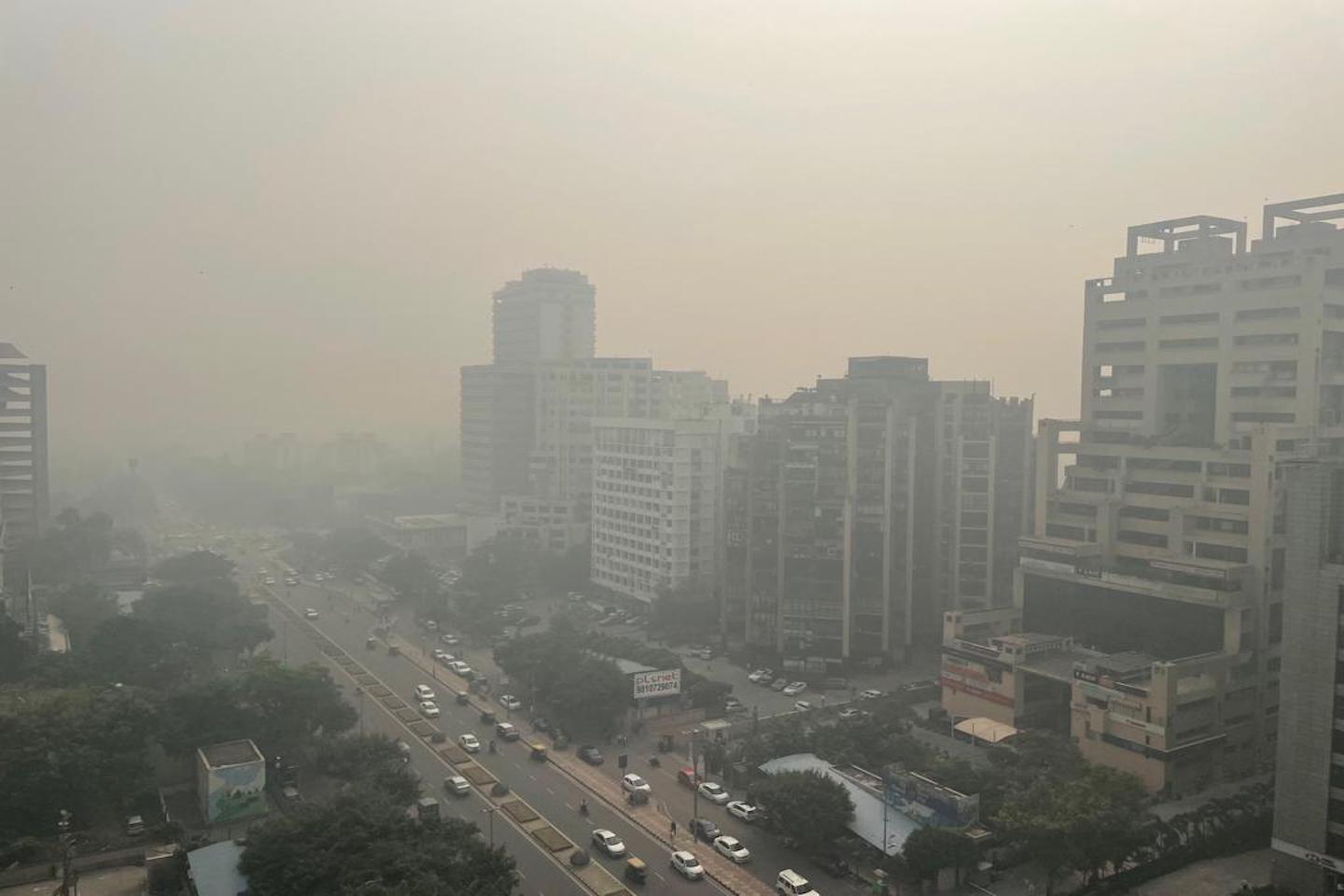- Protecting the Health of Future Generations
Author: Dr Ritu Sethi, Director, the Aura Speciality Clinic, Gurgaon
India
healthysoch
New Delhi, November 18, 2023:
 A mother’s body undergoes tremendous change and development throughout pregnancy as it works nonstop to nourish and safeguard a developing foetus. On the other hand, the health of expectant mothers and their unborn children is seriously threatened by the ever-rising levels of pollution in the modern world. Numerous negative consequences on pregnancy have been related to environmental pollution, which includes exposure to toxic chemicals, water contamination, and air pollution. The following are the impact of pollution on pregnancy, highlighting the risks and emphasizing the importance of mitigating pollution for the well-being of future generations.
A mother’s body undergoes tremendous change and development throughout pregnancy as it works nonstop to nourish and safeguard a developing foetus. On the other hand, the health of expectant mothers and their unborn children is seriously threatened by the ever-rising levels of pollution in the modern world. Numerous negative consequences on pregnancy have been related to environmental pollution, which includes exposure to toxic chemicals, water contamination, and air pollution. The following are the impact of pollution on pregnancy, highlighting the risks and emphasizing the importance of mitigating pollution for the well-being of future generations.
Air Pollution and Impact on Pregnancy:
Because air pollution can have an adverse effect on respiratory health, it is a serious worry during pregnancy. Pregnant women exposed to high levels of air pollutants, such as fine particulate matter (PM2.5), nitrogen dioxide (NO2), and volatile organic compounds (VOCs), face an increased risk of adverse pregnancy outcomes. Many research and studies have shown that exposure to air pollution during pregnancy is associated with a higher likelihood of preterm birth, low birth weight, and developmental issues in children.
One of the key mechanisms underlying these adverse effects is the inflammation and oxidative stress caused by air pollution. Inhaled pollutants can cross the placenta, leading to inflammation and oxidative damage in the developing fetus. This can disrupt fetal development and contribute to complications in pregnancy.
Additionally, air pollution has been linked to an increased risk of respiratory problems in children, such as asthma. Exposure to pollutants during pregnancy may affect lung development, making children more susceptible to respiratory issues throughout their lives.
Water Contamination and Impact on Pregnancy:
Another serious risk to expectant mothers and their unborn children is water contamination. Pollutants that might cause serious injury during pregnancy include heavy metals, insecticides, and industrial pollutants that find their way into sources of drinking water.
For example, Lead, is a well-known developmental neurotoxin. Even low levels of lead exposure during pregnancy can result in cognitive and behavioral problems in the child. Mercury can damage a developing neural system and impair a child’s cognitive ability. It is often found in seafood.
Contaminants like pesticides and industrial chemicals can also disrupt hormonal balance, potentially leading to birth defects, preterm birth, and developmental delays in children. Pregnant women should be cautious about the quality of their drinking water and be aware of potential sources of contamination.
Chemical Exposure and Impact on Pregnancy:
Pregnant women can encounter harmful chemicals in their everyday lives, whether through personal care products, household cleaning agents, or workplace exposures. These products contain a number of common chemicals that may be harmful to the developing foetus as well as the mother.
Phthalates, commonly found in cosmetics and plastics, have been associated with adverse pregnancy outcomes, including preterm birth and developmental issues. Bisphenol A (BPA), used in the production of plastics and found in food packaging, has also been linked to birth defects and developmental problems in children.
Pregnant women are particularly vulnerable to these chemicals because they can cross the placenta and affect fetal development. It is essential for expectant mothers to reduce their exposure to harmful chemicals by using safer products and adopting a more environmentally friendly lifestyle.
Protecting Pregnancy and Future Generations:
To protect the health of pregnant women and the well-being of future generations, we must follow the proactive measures to reduce pollution and its impact on pregnancy. Here are some important steps:
- Improving Air Quality: Promoting cleaner energy sources and adopting stricter emissions regulations. are two ways that governments and communities can help reduce air pollution.
- Clean Water Initiatives: Ensuring access to clean and safe drinking water is essential. Water pollution can be decreased with the support of stringent contaminant regulations and routine source monitoring programmes.
- Safer Chemical Use: People should choose products free of dangerous chemicals, and the manufacture and use of hazardous chemicals should be regulated.
- Education and Awareness: Pregnant women can learn about the dangers of pollution and receive advice on reducing their exposure through public awareness campaigns.
- Prenatal Care: Frequent prenatal examinations and medical supervision can assist in identifying and address the risks associated with pollution during pregnancy.
healthysoch







